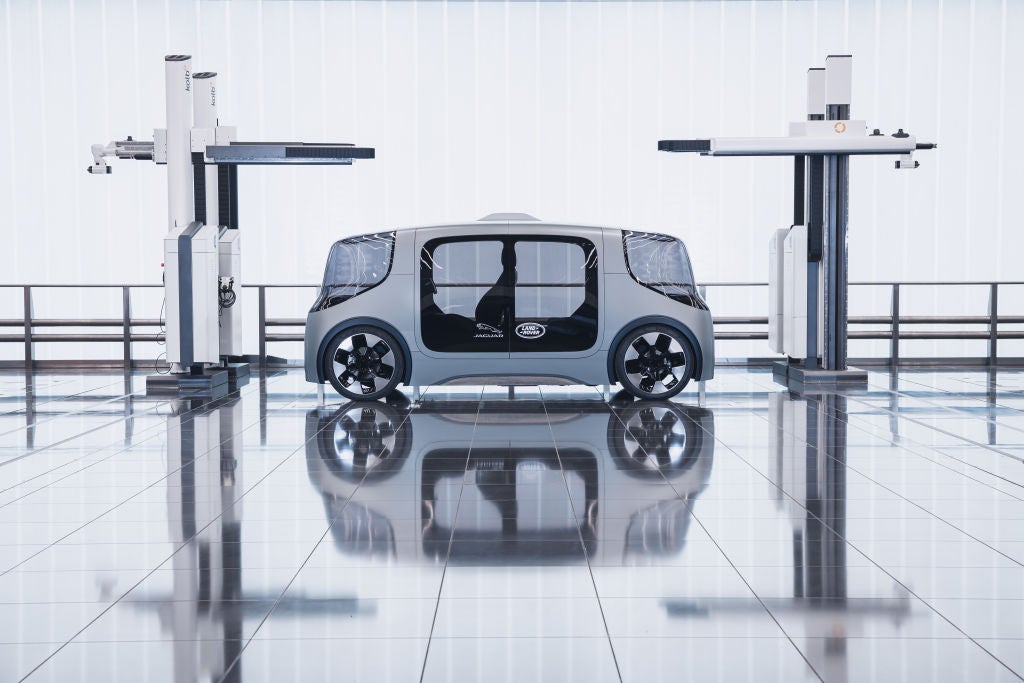Britain has an opportunity to be the electric vehicle workshop of the world
The UK could lead the zero-carbon revolution by re-investing in manufacturing and creating future jobs. But without green power and government support, the industry will be left behind


Your support helps us to tell the story
From reproductive rights to climate change to Big Tech, The Independent is on the ground when the story is developing. Whether it's investigating the financials of Elon Musk's pro-Trump PAC or producing our latest documentary, 'The A Word', which shines a light on the American women fighting for reproductive rights, we know how important it is to parse out the facts from the messaging.
At such a critical moment in US history, we need reporters on the ground. Your donation allows us to keep sending journalists to speak to both sides of the story.
The Independent is trusted by Americans across the entire political spectrum. And unlike many other quality news outlets, we choose not to lock Americans out of our reporting and analysis with paywalls. We believe quality journalism should be available to everyone, paid for by those who can afford it.
Your support makes all the difference.Earlier this week Jaguar Land Rover, the jewel in the crown of British manufacturing set out plans to go all-electric by 2025. This is welcome news but more needs to be done to keep jobs in the UK. I’m really concerned that production at their flagship Castle Bromwich plant is under threat. This is another blow after the pandemic has put jobs in crisis.
The government’s disastrous stop-go covidonomics has hit our region hard. No-one saw this crisis coming, yet somehow Britain’s economy has been about the hardest hit in all the world, and within Britain, our region has the hardest hit of all. For our mighty factories that still make half of Britain’s export goods, things have been especially tough. Thousands of well-paid jobs have been lost. But that needn’t be forever.
So, as we speed towards the end of lockdown, we need ministers to stop the dither and delay and back a simple vision: to create in the heart of Britain the workshop of a greener planet, the place that makes the electric vehicles, the zero-carbon railways and the “jet zeros” of the future the world needs to conquer carbon and hold in check a planetary, nature-frying heatwave.
As the region that triggered the carbon revolution back in 1712, when the first proper steam engine was perfected at Dudley Castle, I’ve long felt that we in the Midlands have a special responsibility to now lead the zero-carbon revolution. And, frankly, it’d be good for business.
The metal triangle between Coventry and Birmingham up to Derby and Nottingham, across to Stoke and down through the Black Country is home to the factories and firms that make the planes, trains and automobiles that keep us mobile, but which happen to emit more carbon than anything else. Over a quarter of carbon emissions smoke out from our transport system. Yet this century, this vast factory floor, home to some of the best-paid jobs in Britain, could become a mighty green workshop that makes the green transportation of the future.
This is a huge opportunity for Britain. The world market for electric vehicles – like the newest products made by Jaguar Land Rover or the iconic electric cabs made by London Electric Vehicle Company in Coventry – was worth over £100 billion last year and will multiply eight times in the next seven years. At the heart of his huge new stimulus bill, President Biden is backing the vision of the mighty Union of Auto Workers who make it clear the coming revolution “could be an opportunity to re-invest in … manufacturing” to create the good jobs of the future.
But we don’t just make the automobiles. We make the trains and planes as well. As work starts on HS2, we find ourselves at the happy epicentre of the £200 billion worth of investment going into our railways over the next couple of decades. Rolls Royce’ engines built in Derby, along the aircraft nerve systems built across the West Midlands, have been at the cutting edge of building planes that have halved their fuel burn since 1990. Now the first hybrid electric-hydrogen plane has taken to the air, we have to think radically about modernising the UK’s world-leading aerospace industry. Last year, the world spent about £90 billion on new aircraft. The market for jet-zeroes will be huge.
Last year, the prime minister with much fanfare published a Ten Point Plan that he said pointed the way to a greener land. Since then, we’ve heard nothing more. And while today, West Midlands industry and politicians have rallied to argue for a huge new factory of British batteries to power a new generation of British cars, the government is sitting on its hands. What a contrast to the French and Germans who are pouring billions of Euros into battery plants. Right now, we need ministers to show the same ambition and tell us they’ll invest in the Midlands Gigafactory.
It was two hundred and fifty years ago that the journalist James Boswell ventured north to Birmingham to come to visit one of the marvels of the world. The famous Boulton and Watt Soho Manufactory that churned out the steam engines for everyone from Cornish mine captains to Manchester cotton spinners. There he was greeted by the “iron-chieftain” Matthew Boulton who proudly declared: “I sell here, sir, what all the world desires to have - POWER.” Today, without power – green power – there is no future for manufacturing. We have shovel ready schemes. It is time for ministers to back their pledges with pound notes.
Liam Byrne is Labour candidate for West Midlands Mayor



Join our commenting forum
Join thought-provoking conversations, follow other Independent readers and see their replies
Comments